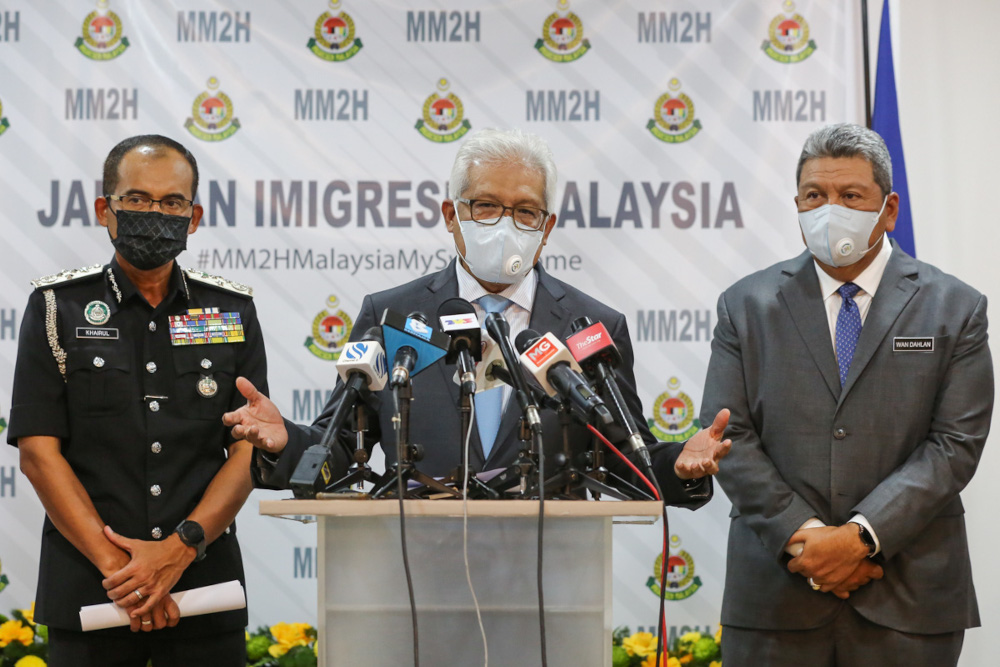PUTRAJAYA, Jan 21 — Home Minister Datuk Seri Hamzah Zainudin today rejected criticism that the Malaysia My Second Home (MM2H) programme’s latest conditions were too strict, saying the 111 new applications since November last year showed otherwise.
Hamzah, who launched the MM2H Executive Lounge Centre in the Immigration Department Headquarters here today, said that 15 of the new applications have been approved, with three of the applicants already residing in Malaysia.
“When we announced the new conditions in May last year, there were many stories that the programme would not get proper participation.
“But since we finalised all the procedures and criteria, and opened up online applications in November (2021), up to today we received 111 new applicants that say they are interested,” he said.
Hamzah added that the rest of the new applications were being processed, though some may be delayed due to incomplete documentation.
He then said that since 1996, MM2H’s predecessor — the Silver Hair programme — and previous adaptations of the MM2H programme had approved a total of 27,285 principal applicants.
“So if you look at the average, (principal) applicants came at a rate of about 1,000 people a year in the past 25 years,” he said.
“At the moment we also have about 111 (applicants from November 2021), it shows that we will get about 1000 (applicants a year).
“And if we approve these 111, they will bring RM1 million each. The quality of applicants has increased and we are confident that this programme will increasingly do better,” he said.
Hamzah was referring to stricter conditions for MM2H applications which was finalised last October, increasing the fixed deposit requirement for applicants to RM1 million, compared to RM300,000 previously.
Hamzah added that the amount of fixed deposit earnings brought in from these applicants were expected to reach RM1 billion.
These were among the changes made by the government, alongside the higher requirements for offshore income and liquid assets, in a bid to limit the programme to “higher quality” participants.
The programme which gives approved applicants a five-year social visit pass, allowing them to leave and reenter the country an unlimited amount of times.
This pass can then be continually renewed every five years.
Previously, various quarters had complained that the higher restrictions would repel potential applicants, reducing the amount of income the programme could bring into the country, as well as affecting the local housing market that contains a large amount of unsold high-end property.



















